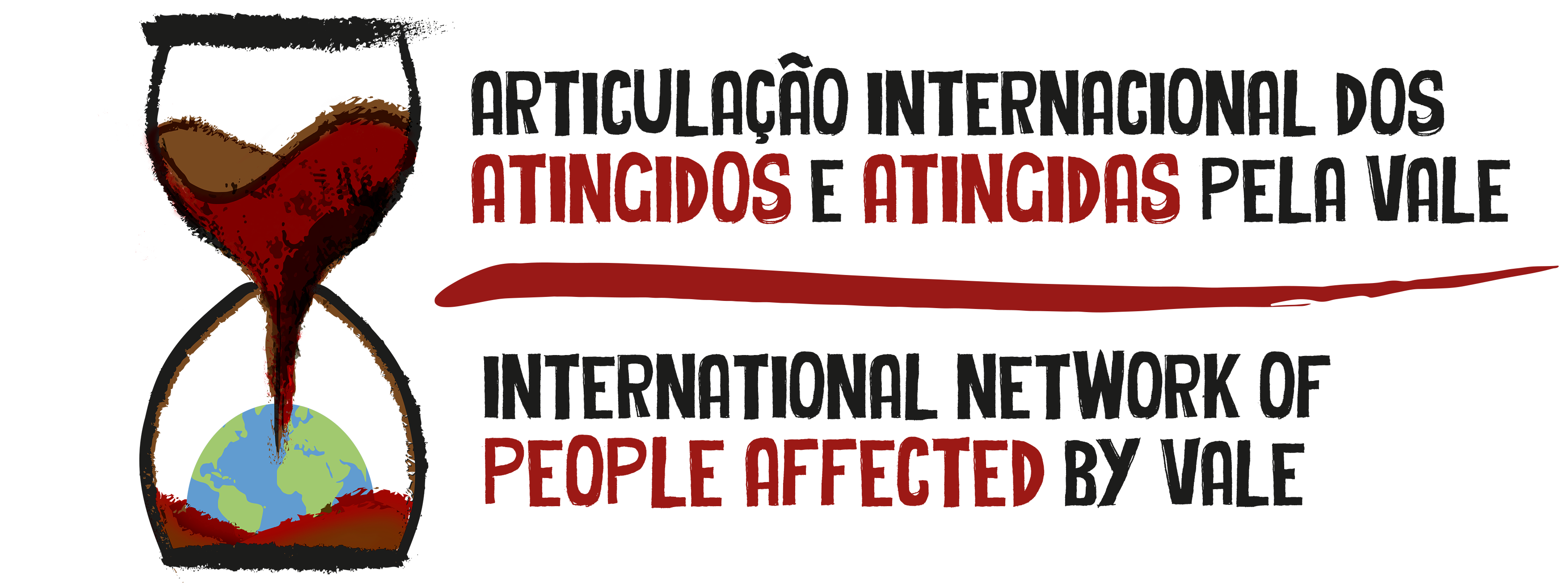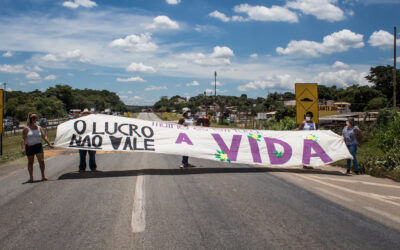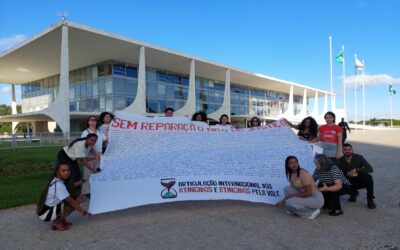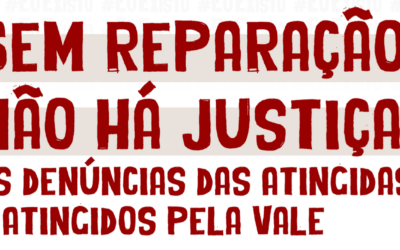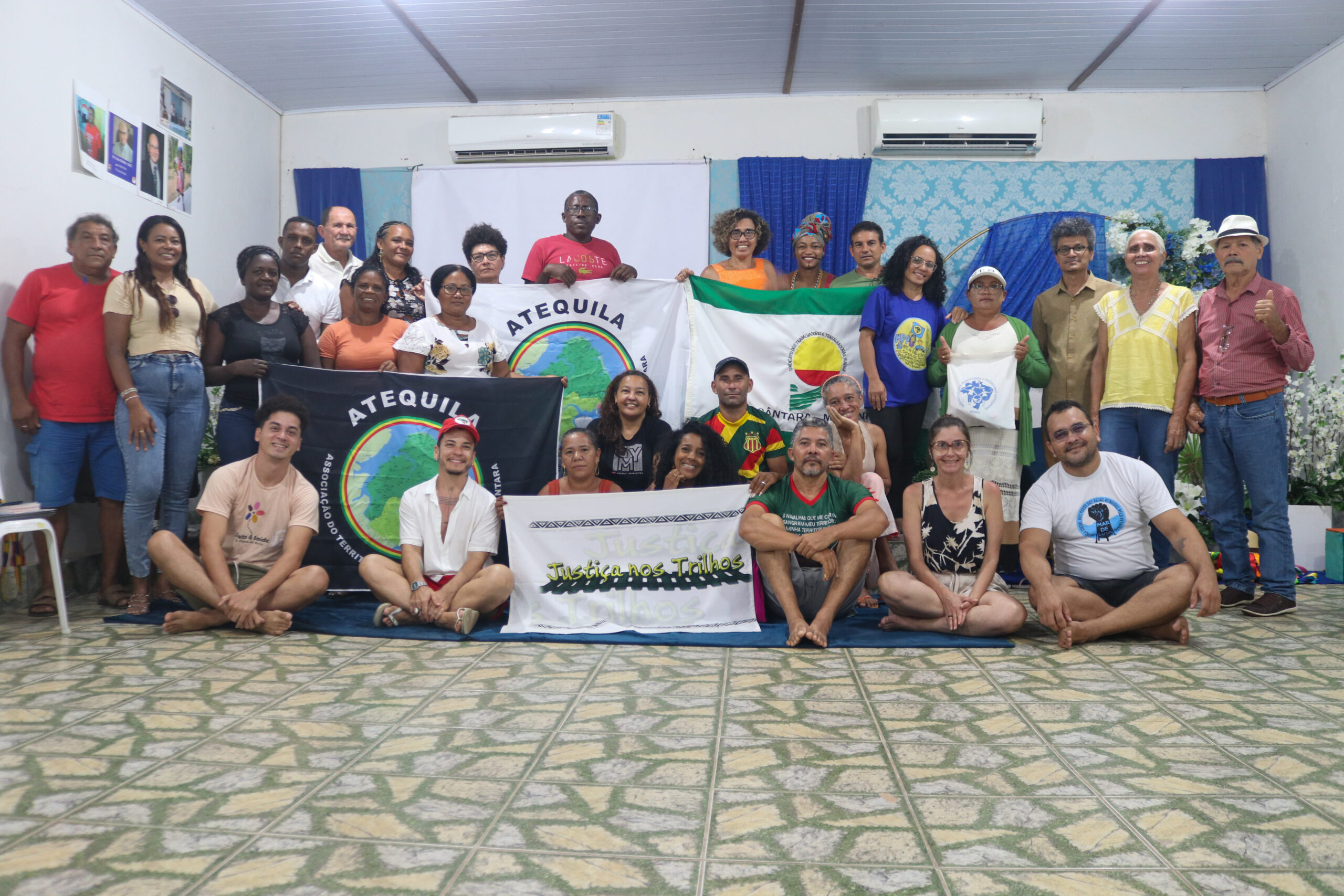We received news of the crime committed by Mitsui in Mauritius on August 6th with great consternation. Mitsui’s carrier hit a coral reef causing a spill of 1,000 tons of fuel oil on the coast. It is another criminal action caused by extractive companies, with immeasurable socioeconomic and ecological damage. It cannot go unpunished.
This event, cannot and should not be considered an accident. It is the result of the modus operandi of these corporations (such as Mitsui and Vale), that drives an extractive model that produces growing social inequalities and threatens life and nature. If, since colonial times, our history has been marked by the extraction of natural resources for export, the turn of the 21st century was marked by an accelerated increase in commodities prices on the international market. This was accompanied by the intense race for land and natural resources across the planet. One of the hallmarks of this phenomenon was the dramatic increase in international trade and the intensification of commodities transportation from peripheral territories to the main centers of the capitalist system. In addition to the socioeconomic and environmental impacts caused by extraction industries, which have long been denounced by countless social groups and networks of civil society, international trade in commodities has been producing risks and increasing impacts along the entire route that links extraction to consumption, including activities related to ports and long distance shipping. This rampant increase in maritime transport puts oceans, flora and fauna at risk, as well as impacting directly on many communities located in coastal areas that depend on ecosystems for their existence and social and economic reproduction.
The bulk carrier, Wakashio, controlled by Mitsui, left China (Tianjin) loaded with fuel en route to Brazil, where it would have docked at the Port of Tubarão, operated by the mining company Vale. There, the ship would be supplied with iron ore that would be transported to China. Note that Mitsui is one of Vale’s shareholders and its partner in numerous projects. The increase in the circulation of large ships loaded with commodities has increased the risks caused by vessels and the operation of ports and made environmental disasters more frequent. In Brazil, in June 2020, a ship called Stellar Banner, which was at Vale’s service and carried iron ore to China (Quigdao), was stranded on the coast of Maranhão, representing a great risk for the entire coastline. In the end, it had to be sunk.
Over the last decade, the International Alliance of People Affected by Vale has been following, the growth of activities and international trade in mineral commodities with great concern. We have persistently denounced the criminal logic of mining companies which, in the name of reducing costs of production and logistics, permanently endanger the planet and territories in which they operate. This is why the serious oil spill that occurred in Mauritius leaves us so dismayed. We will continue to monitor the case and its developments and fight against immunity for those responsible. We wil also fight, for compensation for local communities and for restoration of local ecosystems.
We stand in solidarity with the communities and social organizations that have been fighting the oil pollution on the coast of Mauritius. We call for the government of Mauritius to proceed with investigations of this environmental crime and to take a firm position in implementing all actions necessary to hold Mitsui responsible for all socioeconomic and environmental damage. In addition, all residents of coastal communities, whose lives have been affected by the fuel leak, must be compensated for the social, economic and psychological damage suffered and have their rights guaranteed. The government of Mauritius must also ensure that Mitsui employs all possible resources to minimize damage to the coral reef and the local ecosystem. It must also undertake initiatives for recuperation from the damages already caused to the environment.
Based on the similarities between the disaster that occurred in Mauritius and the recent case of the ship Stellar Banner in Maranhão, and considering that Vale is responsible for the risks produced by transporting its ore to its final destination, it is urgent that Vale undertake a review of all its contracts with logistics companies, especially those for maritime transport, and that it applies the company’s code of conduct for suppliers rigorously. Additionally, in keeping with the company’s recent announcement of a US$ 2 billion investments in reducing carbon emissions from its direct and indirect operations, it is urgent that Vale reconsiders and shortens the long distances involved in its supply chain, from production to consumption, and reduces its CO2 emissions.
Moreover, we urge Vale to operate with due diligence on human rights throughout its value chain, as provided for in the United Nations’ guiding principles on business and human rights, thereby preventing a repetition of the disasters caused by the Wakashio and the Stellar Banner.
How long will we continue to allow these companies to destroy the planet and life on it in the name of profit?
